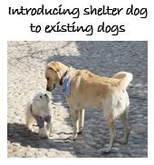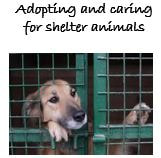Can Dogs Get Coronavirus - COVID - 19
We found this on American Kennel Club's website - a brilliant source of information for all things dog - https://www.akc.org/
We found this on American Kennel Club's website - a brilliant source of information for all things dog - https://www.akc.org/
Dogs can contract certain types of coronaviruses, such as the canine respiratory coronavirus, but this specific novel coronavirus, aka COVID-19, is believed to not be a threat to dogs.
The World Health Organization has stated, “While there has been one instance of a dog being infected in Hong Kong, to date, there is no evidence that a dog, cat or any pet can transmit COVID-19. COVID-19 is mainly spread through droplets produced when an infected person coughs, sneezes, or speaks. To protect yourself, clean your hands frequently and thoroughly.”
Li Lanjuan, an epidemiologist and representative of China’s National Health Commission cautioned pet owners in China to be vigilant about their own health and the health of their pets: “If pets go out and have contact with an infected person, they have the chance to get infected. By then, pets need to be isolated. In addition to people, we should be careful with other mammals especially pets.”
The CDC says that “while this virus seems to have emerged from an animal source, it is now spreading from person-to-person.” The CDC recommends that people traveling to China avoid animals both live and dead, “but there is no reason to think that any animals or pets in the United States might be a source of infection with this novel coronavirus.”
While the one dog in Hong Kong has shown a “low-level infection” with COVID-19 that is “likely to be a case of human-to-animal transmission,” local government health officials emphasize that “there is currently no evidence that pet animals can be a source of infection of COVID-19 or that they become sick.”
Dr. Jerry Klein, Chief Veterinary Officer for the AKC, says, “The CDC has not reported any cases of pets or other animals becoming infected with COVID-19 in the United States or anywhere else in the world, including hotbeds like Italy.” Dr. Klein urges common sense best practices when it comes to our pets: “If you have children, you wouldn’t have them touch a puppy and put their fingers in their mouth, because they can have fecal contamination,” he says. “The general practice of washing our hands after touching a puppy or a dog—that’s normal hygiene.”
How can dog owners protect dogs from coronavirus?
For now, healthy pet owners in the U.S. don’t need to do anything other than follow basic hygienic precautions such as washing their hands with soap and water before and after contact with any animal, including dogs and cats. If you test positive for COVID-19 or have been exposed to the novel coronavirus, experts recommend that you should “restrict contact with [your] animals — both to avoid exposing the pets and to prevent getting the virus on their skin or fur, which might be passed on to another person who touches the animal.” To reduce the spread of all germs, you may consider wiping your pet’s paws when they come in and out of the house with a paw cleaner and paw wipes.
Dogs do not need a face mask to protect themselves against the novel coronavirus COVID-19. If you are still concerned or notice a change in your dog’s health, speak to a veterinarian. And the most important protection of all: Under no circumstances should owners abandon their dogs, cats, or other pets because of COVID-19 fears.
The World Health Organization has stated, “While there has been one instance of a dog being infected in Hong Kong, to date, there is no evidence that a dog, cat or any pet can transmit COVID-19. COVID-19 is mainly spread through droplets produced when an infected person coughs, sneezes, or speaks. To protect yourself, clean your hands frequently and thoroughly.”
Li Lanjuan, an epidemiologist and representative of China’s National Health Commission cautioned pet owners in China to be vigilant about their own health and the health of their pets: “If pets go out and have contact with an infected person, they have the chance to get infected. By then, pets need to be isolated. In addition to people, we should be careful with other mammals especially pets.”
The CDC says that “while this virus seems to have emerged from an animal source, it is now spreading from person-to-person.” The CDC recommends that people traveling to China avoid animals both live and dead, “but there is no reason to think that any animals or pets in the United States might be a source of infection with this novel coronavirus.”
While the one dog in Hong Kong has shown a “low-level infection” with COVID-19 that is “likely to be a case of human-to-animal transmission,” local government health officials emphasize that “there is currently no evidence that pet animals can be a source of infection of COVID-19 or that they become sick.”
Dr. Jerry Klein, Chief Veterinary Officer for the AKC, says, “The CDC has not reported any cases of pets or other animals becoming infected with COVID-19 in the United States or anywhere else in the world, including hotbeds like Italy.” Dr. Klein urges common sense best practices when it comes to our pets: “If you have children, you wouldn’t have them touch a puppy and put their fingers in their mouth, because they can have fecal contamination,” he says. “The general practice of washing our hands after touching a puppy or a dog—that’s normal hygiene.”
How can dog owners protect dogs from coronavirus?
For now, healthy pet owners in the U.S. don’t need to do anything other than follow basic hygienic precautions such as washing their hands with soap and water before and after contact with any animal, including dogs and cats. If you test positive for COVID-19 or have been exposed to the novel coronavirus, experts recommend that you should “restrict contact with [your] animals — both to avoid exposing the pets and to prevent getting the virus on their skin or fur, which might be passed on to another person who touches the animal.” To reduce the spread of all germs, you may consider wiping your pet’s paws when they come in and out of the house with a paw cleaner and paw wipes.
Dogs do not need a face mask to protect themselves against the novel coronavirus COVID-19. If you are still concerned or notice a change in your dog’s health, speak to a veterinarian. And the most important protection of all: Under no circumstances should owners abandon their dogs, cats, or other pets because of COVID-19 fears.
|
The first two weeks with your new dog are of utmost importance. It is where we put down the basic foundations, and this article will give you some great tips and ideas.
|
This articles tells you how to introduce them, plus some tips to consider beforehand.
|
This is an excellent article which all of those wonderful people that are considering adopting a dog, cat or other animal should read before going ahead.
|




